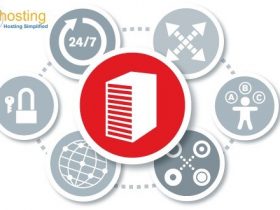It’s no secret that data is changing and that data storage devices are changing right along with it. So the debate wages on as to which

type of storage technology will stick around and which storage type will fade away. The decision between hard disk drives (HDDs) versus solid state drives (SSDs) is not that simple. On the surface you could argue that HDDs will run their course because they are slow and inefficient, or that SSD technology isn’t sustainable because it’s so expensive. The truth is somewhere in the middle. Hard disk technology is improving in some sectors, and SSD technology is becoming more affordable. In this post we’ll cover some key differences between SSDs and HDDs so you can make the best decision possible.
HDDs versus SSDs: What’s the difference?
- HDDs – At their core, hard disk drives are mechanical. All data is stored on a few magnetic spinning plates or discs. A read-write head sits above the plate to read and write data to your hard drive. You’ve probably noticed hard drive specifications like, 5,400 or 7,200 RPMs. Since the hard drive’s plates have to spin in order to locate information, these speeds are important as they indicate how fast the plates spin and have a direct impact on how quickly those drives can store and retrieve data.
- SSDs – SSDs operate on the same idea as hard drives but they come at the data storage and management solution at a different angle. For instance, SSDs don’t rely on any mechanical technology. They are solid state, which basically means that instead of a few spinning plates, the drive is made up of small silicon chips where data is read and written. They’re able to perform much more quickly because the data is accessed electrically, not magnetically.
HDD versus SSD Considerations
- Cost – Companies stick with hard disk solutions because they are often cheaper. Just a few years ago HDDs cost about half of what SSDs cost. Depending on who you ask, hard disk storage prices are climbing due to a lack of supplies because of natural disasters in countries where hard disks are manufactured.
- Performance – HDDs still perform fairly well stacked up against tape storage, but they lag behind SSD performance. When it comes to performance, a recent Dell whitepaper revealed that SSDs perform read-write functions almost twice as fast as HDDs. SSDs can also handle much more data simultaneously. Additionally, SSD storage arrays are much more energy efficient because they rely on low-power silicon chips, as opposed to the spinning discs inside hard disk enclosures.
- Lifespans – This is where things get particularly heated in the data community. Some analysts argue that there isn’t a huge difference in storage device lifespans when SSDs and HDDs are measured against each other. However, when you start managing heavier workloads, HDDs start to die off a little sooner. But even with fairly significant data and media streaming workloads SSDs can still last up to five years, which is almost twice the lifespan of an HDD managing similar workloads.
The world of storage devices is fairly split in the middle. IT pros don’t want to get rid of storage solutions that have served them well over the years, and some early adopters are a little too quick to abandon reliable technology. But with SSD technology experience a sharp decline in cost, it’s hard to argue against the full-scale adoption of solid state technology.
























